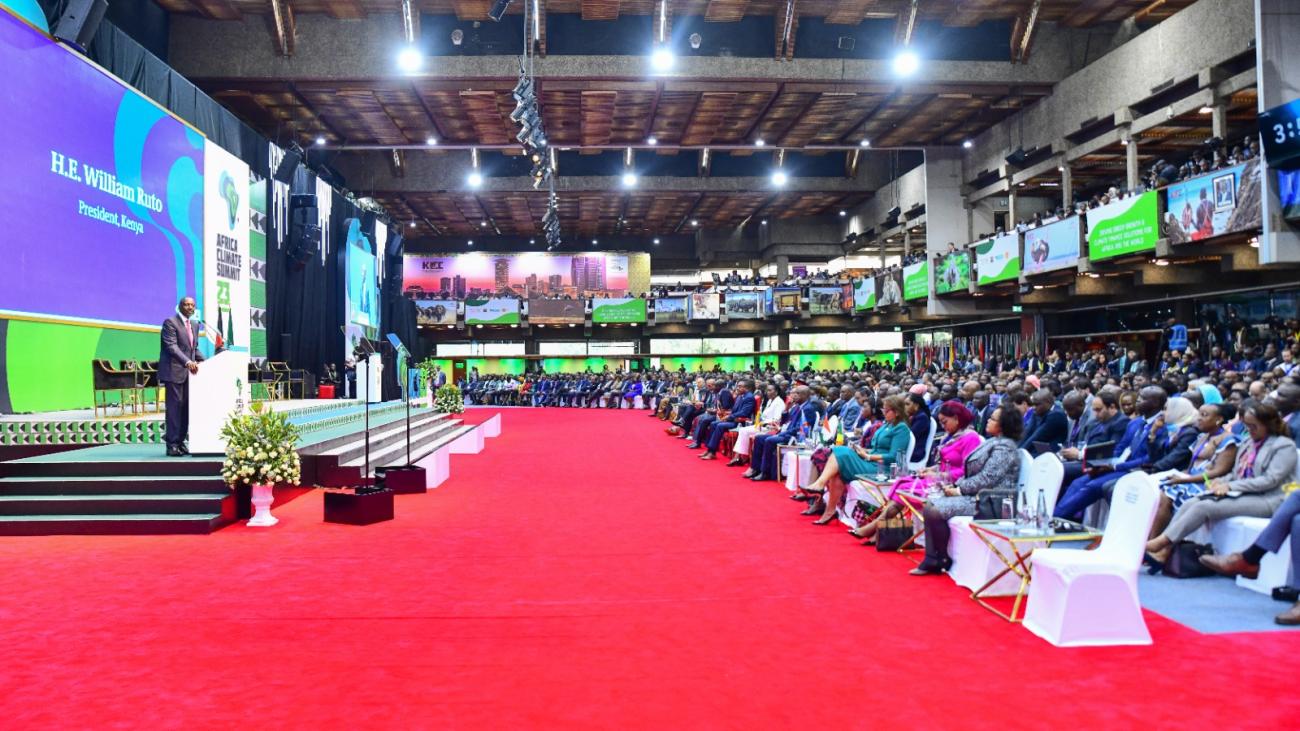The Resilient Africa Summit in Nairobi has concluded with a resounding call to channel climate finance directly to local governments, farmers and youth, arguing that those most affected by the climate crisis must be empowered to lead adaptation efforts.
The gathering at the United Nations Complex in Gigiri, brought together more than 500 delegates, including African leaders, scientists, youth activists, faith-based organizations and development partners.
Participants described Africa as being on the frontline of climate shocks despite contributing the least to global greenhouse gas emissions.
They warned that without direct access to resources, local communities will remain unable to protect lives, livelihoods and ecosystems from worsening droughts, floods and food insecurity.
Dr Éliane Ubalijoro, Chief Executive Officer of CIFOR-ICRAF, told the summit that even the most ambitious climate plans would fail unless resources reach those most at risk.
“Action must be matched with investment,” she said.
The conference, officially known as the Vatican African Conference on Climate Resilience, was convened by the Pontifical Academies of Sciences and Social Sciences in partnership with CIFOR-ICRAF, the Network of African Science Academies and regional partners. Delegates endorsed the Mitigation, Adaptation and Societal Transformation (MAST) framework, which emphasizes proactive climate resilience through stronger adaptation finance, nature-based solutions, education and institutional reform.
County leaders from across Kenya pledged to design city- and region-specific resilience blueprints, including bankable investment plans for infrastructure, agroecological transitions and water management.
Dr Wilber Ottichilo, Governor of Vihiga County and Chair of the Council of Governors’ Environment Committee, stressed the urgency of rethinking financing structures.
“We need direct access mechanisms, we need support and we need trust,” he said.
Faith-based leaders and youth voices played a central role in shaping the Nairobi declaration.
Archbishop Philip Anyolo of Nairobi described climate change as an existential and spiritual challenge that demanded moral solidarity, while Cardinal Peter Turkson of the Pontifical Academy of Social Sciences urged intergenerational justice, warning against passing on creation “as a wilderness” to future generations.
Youth delegates from across Africa pressed for greater inclusion in decision-making, insisting that resilience efforts must reflect their priorities.
“There is nothing about us, without us. And our time is now,” said Ghanaian youth advocate Valerie Nutakor.
The summit ended with the adoption of a declaration titled From Climate Crisis to Climate Resilience in Africa at Local and Regional Levels, which sets out a continental roadmap ahead of COP30 in Brazil.
Delegates stressed that declarations alone would not suffice, underscoring the need for political will, long-term finance and concrete implementation.
From Nairobi, the message was clear: Africa’s climate resilience will be built not in distant boardrooms but in villages, counties and communities, where the fight against climate change is lived every day.

